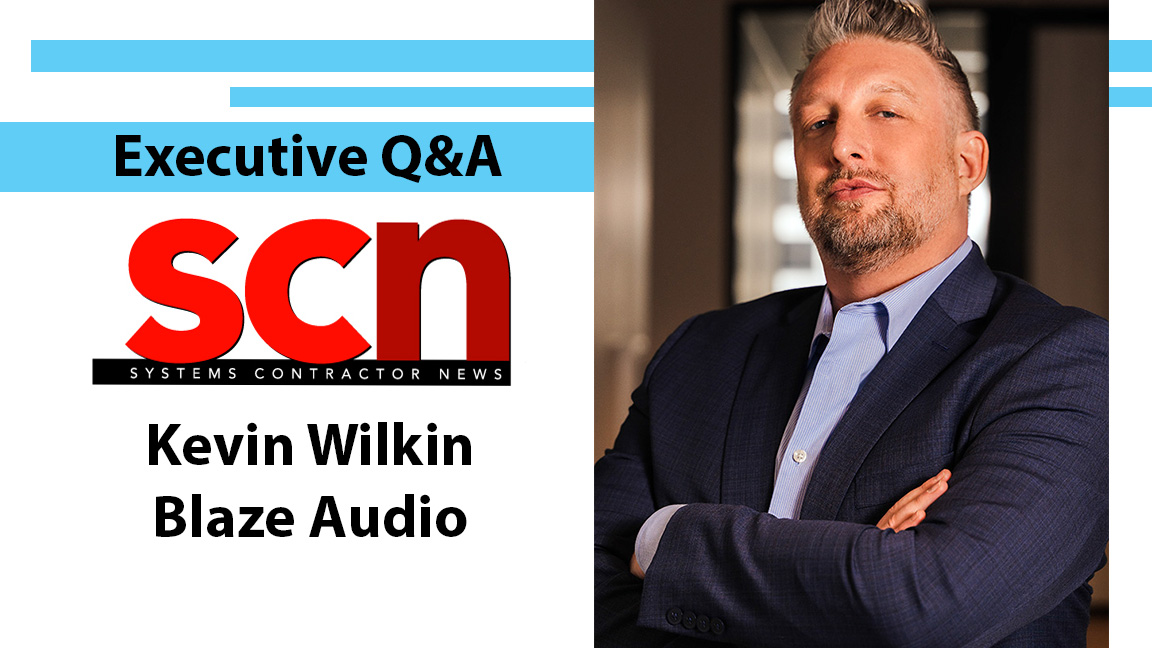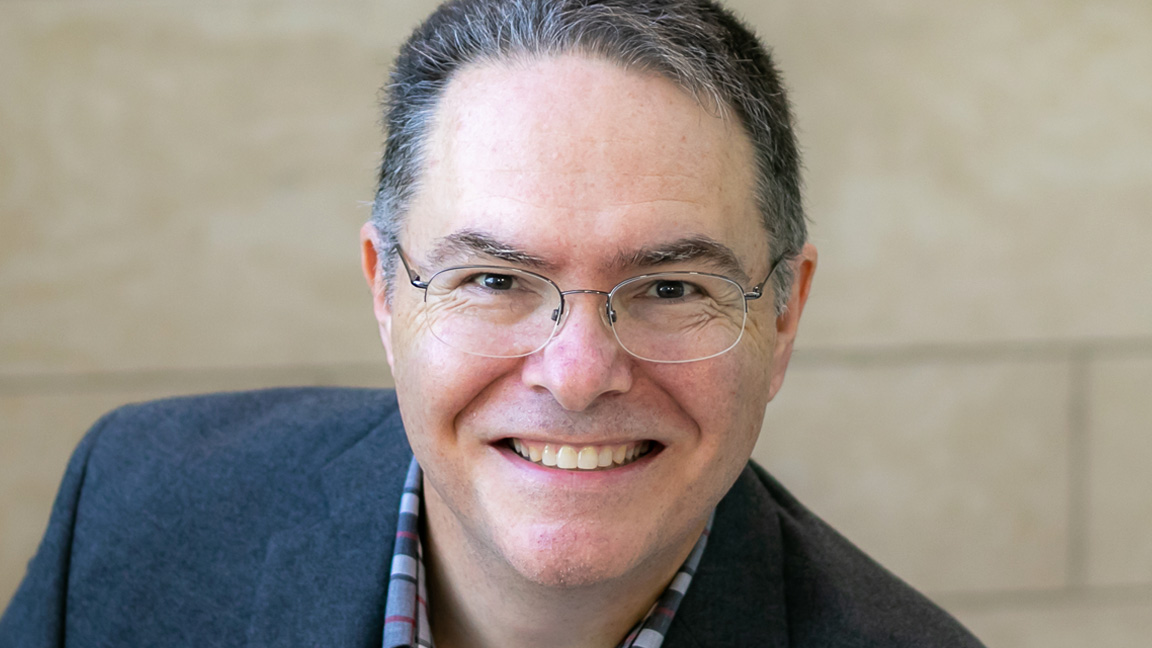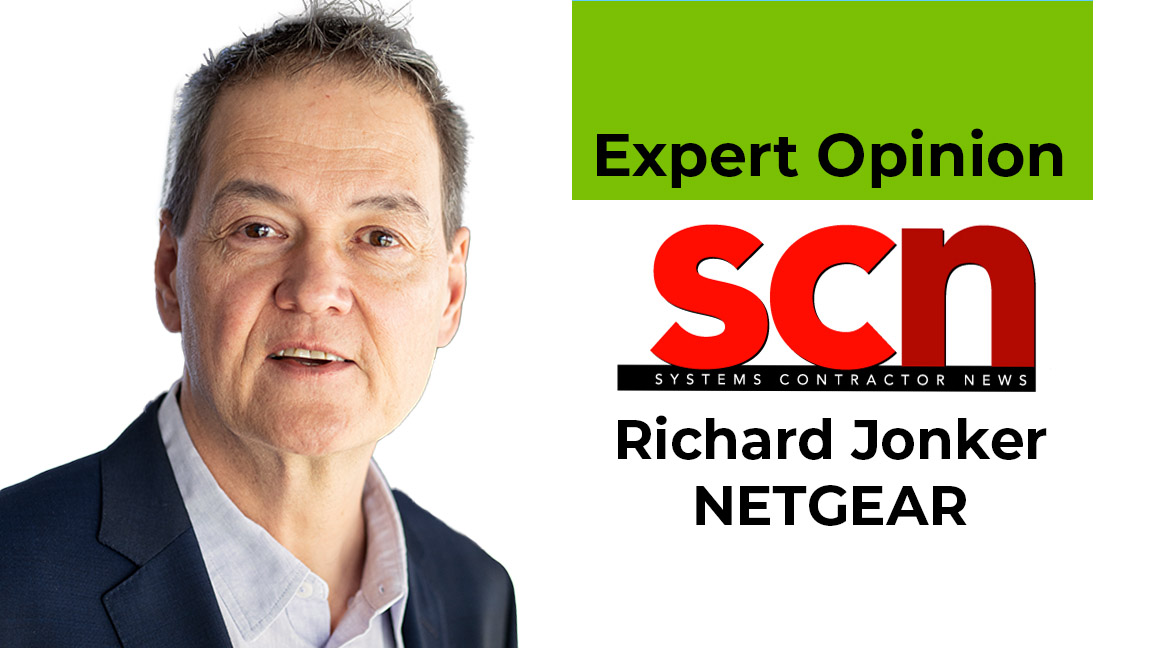Executive Q&A: Blaze Audio Is On a Mission
According to Kevin Wilkin, executive sales director for North America, the company delivers commercial simplicity through product flexibility.

SCN: How long have you been with this company, and what are your responsibilities?
Kevin Wilkin: I began working with Blaze Audio only recently. While we’re well established in Europe, Blaze Audio is a start-up here in the United States. I was hired to establish business operations for the Americas as well as to build the sales channel for North America.
SCN: How has your background prepared you for your role?
KW: Most of my years in the AV industry have been working for or on behalf of manufacturers. However, I consider it an advantage to have worked on all sides of this industry starting as a fulltime musician, moving to studio recording engineer, to manager of a Pro Audio department for a major MI retailer, to Pro Audio manufacturer representative in the NY Metro area, to AV integrator, to commercial/pro audio manufacturer, and now to Blaze Audio. I like to think I’ve learned how to listen to what customers want and to anticipate what they require.
SCN: What are the short and long-term goals for your company?
KW: Blaze is on a mission to create commercial simplicity through product flexibility at competitive price points. We will ensure commercial simplicity by way of streamlined operations and by product flexibility that facilitates a few products covering most fixed install applications. This allows system integrators and dealers to carry fewer SKUs in stock and simplify stockkeeping, service, support and in and outbound ordering and logistics. We want to offer the go-to solution for system integrators and dealers doing small to medium-size applications.
[Executive Q&A: All About Interoperability]
SCN: Blaze Audio is very focused on retail spaces. Why is audio so important in places like stores, cafes, and hotels?
KW: Blaze Audio is about facilitating a feeling or vibe that enhances a person’s experience of a space, activity, or event. Shopping is one such experience—and there are decades worth of data showing how background music boosts sales. As a commercial audio provider, we see our products playing an important role in most commercial audio applications.
A daily selection of features, industry news, and analysis for AV/IT professionals. Sign up below.
SCN: What are some of the most common audio mistakes you find in retail spaces?
KW: From a product support standpoint, I can comfortably say that a lot of the product support calls I’ve seen involve answering very basic installation questions because the techs, while perhaps well versed in something else, are not comfortable with audio. That means as a good partner, we need to provide remote connectivity to assist in programming our smart amplifiers, offer great and supportive phone assistance, educate techs on distributed audio systems, and be willing to walk the tech through the installation if it comes to that.
[Executive Q&A: Choose Your AV Path]
SCN: Why the decision to allow your new PowerZone Connect amplifiers to be configured via cell phone?
KW: In short, it amounts to unparalleled product flexibility. So much of what we do today is done through our phones, and we expect to be able to make changes to our environment with them. Hence, we’re aligning with how people already interact with their personal technology. The PowerZone Connect amplifiers can, of course, be controlled from any smart device since it is browser-based. The amps literally have a router built into them that immediately shows their availability as a Wi-Fi device on your phone, tablet, or laptop.
AV companies are experiencing less and less profitability on hardware, and are having to focus more on services to be profitable.
SCN: Where do you see the pro AV industry heading?
KW: I’ll speak in terms of two trends I see. As a result of the COVID-19 pandemic, I think we’re going to see an evolution of technology that must keep up with the fast-changing complexities of our lives as social beings. The physical boundaries we were accustomed to pre-pandemic relative to work, shopping, worship, healthcare, etc. have been blurred so greatly they will never be the same again. We’re no exception. Blaze Audio is being constructed as a company without walls—one that can readily adapt to the changes we all experience. Secondly, I think AV companies are experiencing less and less profitability on hardware, and are having to focus more on services to be profitable. This is not a new trend. As a good partner, it’s important for Blaze Audio to facilitate the sale of services—and providing networkable audio product is part of that.
SCN: What new initiatives are we likely to see from your company?
KW: Currently, Blaze Audio is about providing high quality future-proof amplifier solutions at unbeatable prices. Our products must play well with others. As we speak, we’re rolling out new firmware for the PowerZone Control Web App with drivers for the major third-party control platforms and ability to select loudspeaker presets encompassing all major brands. You’ll see us expand smart accessory options for our amplifiers. Perhaps more significantly, we have one of the foremost loudspeaker engineers in the U.S. on our team designing unique performance grade speakers. Combined with the amplifier technology of Pascal, this meeting-of-the-minds represents a wealth of opportunity going forward.
SCN: How can systems contractors better position themselves to profit from products and/or services you have to offer?
KW: From a hardware perspective, I think Blaze Audio already comes in as a more profitable product at a more competitive price. We offer complementary system design services for those who would benefit and by registering projects, the profitability for integrators becomes significantly greater. Setup time for the PowerZone Connect matrix amplifiers DSP is both simple and sophisticated, so programming/labor time is minimal.

Mark J. Pescatore, Ph.D., has been the content director of Systems Contractor News since 2021. During his career, he's hosted and programmed two ongoing regional industry trade shows (including Future B2B's AV/IT Summit), produced and hosted podcasts and webinars focused on the professional video marketplace, taught more than a dozen college communication courses, co-authored the book Working with HDV, and co-edited two editions of The Guide to Digital Television.
